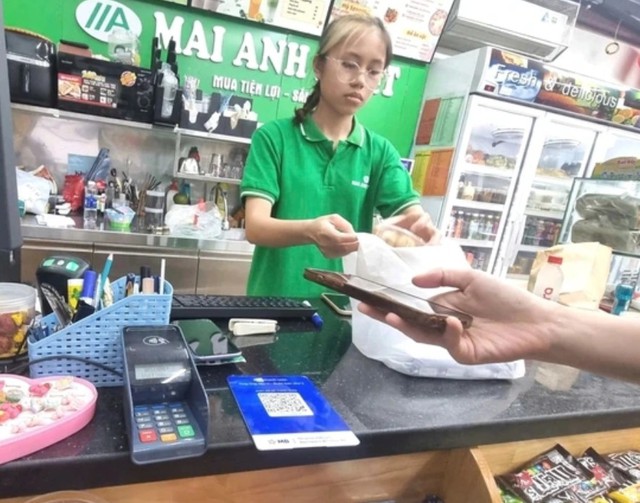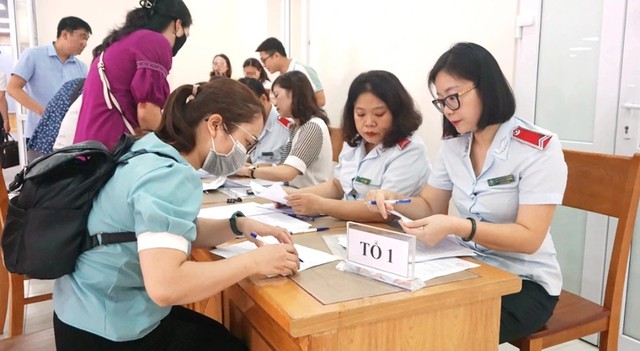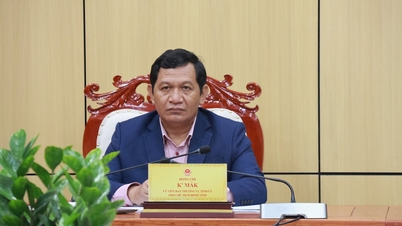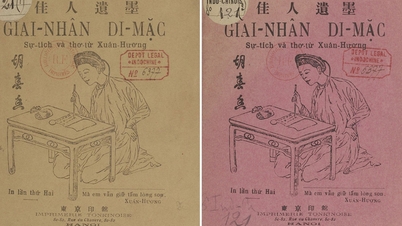Transfers exceeding 500 million VND must be reported to the Anti-Money Laundering Department.
This content was issued by the State Bank of Vietnam in Circular 27/2025/TT-NHNN. Specifically, Article 9 of the circular stipulates the reporting regime for electronic money transfer transactions to the Anti-Money Laundering Department using electronic data, including:
Domestic electronic money transfer transactions: transactions with a value of VND 500 million or more, or the equivalent value in foreign currency, where all participating financial institutions are located in Vietnam.
International electronic money transfer transactions: electronic money transfer transactions involving at least one financial institution outside Vietnam, conducted in countries or territories outside Vietnam, with a value of USD 1,000 or more, or the equivalent in other foreign currencies.
However, if the reporting entity is a financial institution acting as an intermediary in electronic money transfer transactions, it is not required to submit the above report.
Regulations on cashless payment services
The State Bank of Vietnam has just issued Circular No. 30/2025/TT-NHNN dated September 30, 2025, amending and supplementing a number of articles of Circular No. 15/2024/TT-NHNN regulating the provision of non-cash payment services . The Circular takes effect from November 18, 2025, except for the provision in Clause 2, Article 7, which will take effect from April 1, 2026.
To be eligible for input value-added tax deduction, businesses must have non-cash payment documentation for purchased goods and services.
PHOTO: DAN THANH
Accordingly, Circular 30/2025 supplements regulations on customer identity verification, requiring Vietnamese citizens to present their citizen identification card or level 2 electronic identification; for foreigners residing in Vietnam, they must have a passport, equivalent document, or level 2 electronic identification when using the service.
Furthermore, the Circular tightens the responsibilities of payment service providers in handling complaints and reports of violations, and requires them to ensure that online payment systems are not interrupted for more than 4 hours per year.
If the interruption time exceeds 30 minutes or the maintenance is not announced in advance, the unit must report to the State Bank of Vietnam within 4 hours and submit a detailed report within 3 working days.
Stricter enforcement against late payment and evasion of mandatory social insurance contributions.
The government has just issued Decree No. 274/2025/ND-CP dated October 16, 2025, detailing the implementation of several articles of the 2024 Social Insurance Law regarding late payment and evasion of mandatory social insurance and unemployment insurance contributions, and the handling of complaints and denunciations in this field. The Decree takes effect from November 30, 2025.
According to the new regulations, employers who are late or evade mandatory social insurance and unemployment insurance contributions will have the exact amount and number of days of violation determined. The late payment penalty is calculated based on the employer's contribution obligation, while the number of days of evasion is determined from the day following the deadline for payment as stipulated.
From November 30, 2025, delays in paying social insurance contributions exceeding 60 days will be considered evasion.
PHOTO: TN
However, Article 4 of this decree stipulates that cases not considered as evasion of mandatory social insurance and unemployment insurance contributions include: when one of the following reasons, as announced by competent authorities regarding disaster prevention, emergency situations, civil defense, and disease prevention and control, is present: storms, floods, earthquakes, major fires, prolonged droughts, and other natural disasters that directly and severely affect production and business activities; dangerous epidemics announced by competent state agencies that severely affect production, business activities, and the financial capacity of agencies, organizations, and employers; and emergency situations as prescribed by law that cause sudden and unexpected impacts on the operations of agencies, organizations, and employers.
In addition, other force majeure events as stipulated by civil law are not considered as evasion of social insurance contributions.
Commercial banks are entrusted with receiving gold bars.
According to Circular 33/2025/TT-NHNN issued by the State Bank of Vietnam, from November 15th, credit institutions are allowed to receive and deliver gold bars to customers, on a piece-by-piece basis, instead of only the State Bank of Vietnam having this authority as before.
Commercial banks are authorized to receive and deliver gold bars starting November 15, 2025.
PHOTO: DAO NGOC THACH
The circular also specifies the classification standards for gold into three groups: jewelry gold (with a purity of 8 karats or higher), gold bars (with clear markings, specifications, and standards), and raw gold (in the form of ingots, granules, or pieces). Packaging for gold bars must be anti-counterfeiting according to the standards of commercial banks or businesses authorized to produce gold bars.
Notably, the packaging and sealing of gold are more strictly regulated: gold bars of the same quality are packaged in lots of 100 or multiples of 100 (maximum 500 bars), raw gold is packaged in lots of 5 or multiples of 5 bars (maximum 25 bars), in sealed stainless steel boxes with clearly marked inspection information.
According to this circular, commercial banks are permitted to deliver and receive gold bars from customers accompanied by a delivery record, contract, or transaction confirmation document. This aims to ensure transparency, traceability, and quality of each gold bar product.
Promulgating the new Vietnamese economic sector classification system.
The Prime Minister has just signed Decision No. 36/2025/QD-TTg dated September 29, 2025, promulgating the Vietnamese Economic Classification System, effective from November 15, 2025, replacing Decision No. 27/2018/QD-TTg.
The newly updated industry classification system standardizes the list of industry codes to align with digital transformation trends, green economic development, and international integration. The decision clearly stipulates the principles for using industry codes in business registration, investment registration, state statistics, and administrative databases.
Accordingly, businesses need to review and update their registered business codes to ensure consistency and avoid discrepancies in administrative procedures and statistical reporting. The application of the new system is expected to help synchronize national economic data and improve the efficiency of policy planning.
Thanhnien.vn
Source: https://thanhnien.vn/nhung-chinh-sach-noi-bat-co-hieu-luc-tu-thang-11-185251029094302586.htm






































































































Comment (0)